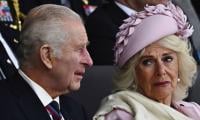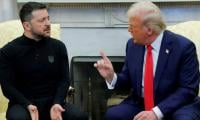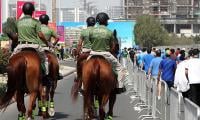The Karachi Metropolitan Corporation’s (KMC) City Council passed its much-awaited resolution for the collection of Municipal Utility Charges and Taxes (MUCT) through K-Electric (KE), on Tuesday, amid protests by the opposition.
Mayor Barrister Murtaza Wahab said that by collecting MUCT through KE bills, the corporation would get an income of Rs4 billion, from which development work could be done in all the union committees. He said this is not a new tax; rather, it has been in force since June 2, 2008.
He explained they have lowered the rate of MUCT as there is no tax for 100 units, only Rs20 from 101 to 200 units and Rs40 from those using electricity from 201 to 300 units would be charged and this rate would be kept in the same way.
The mayor said the K-Electric would receive 7.5 percent of the deposit and all the remaining amount would be transferred to the account of the KMC. “We will spend all the money received in this head with transparency and will give account of every rupee spent.”
On the order of the court, he told a press conference after the City Council meeting that they have passed the resolution from the city council and 195 members have voted in favour of this resolution.
Deputy Mayor Salman Abdullah Murad, Parliamentary Leader Najmi Alam, Deputy Parliamentary Leader Dil Muhammad, Juman Darwan, Karamullah Waqasi and other leaders and members of the city council were also present on this occasion.
The JI’s Najmi Alam during the City Council session said the MUCT was introduced in 2008 which used to be collected by a private company. He explained that 25 percent of the collected amount was given to a private company. “The KMC didn’t have enough staff to collect this tax,” he said, adding that it was then decided to collect the tax through the K-Electric bill.
The court directed the KMC to get this tax approved again by the council. He said the current rates are low.
“There’s no charge for 100 units,” he said, adding that Rs20 for up to 200 units, while Rs40 for up to 300 units.
“We also have many issues with K-Electric. I will suggest to the mayor that 70 percent of the tax money should go to the union committee,” he said, adding that the KMC should keep 30 percent for major projects and should not let politics affect this tax. “If the council succeeds, everyone will succeed,” he said.
Meanwhile, the opposition leader of the City Council, Saifuddin Advocate, alleged that the KE had become a problem for all of Karachi’s residents and it had been overbilling by Rs20 billion each year.
He said they have serious concerns about the collection of the municipal tax through KE, which, he alleged, is notorious for overbilling. “We have objections to collecting municipal tax through K-Electric,” he said, adding that they want to take the MUCT issue to court.
He pointed out how Karachi’s administrative institutions have taken huge loans. The Karachi Water Sewerage Corporation and the KMC, he said, have taken loans of Rs200 billion for the World Bank’s Competitive Livable City of Karachi.
During his presser, Mayor Wahab said taxation is the authority of the council. “I thank the lawyer of the Jamaat-e-Islami for not criticising the MUCT unnecessarily during the hearing of this case in the court,” he said and thanked the political parties that voted in favour of this resolution.
He said many institutions, including the National Highway, collect the toll tax, but no one gives tax in Karachi. The mayor said no land and no property of the KMC is being given to any third party.“All the lands will remain the property of the KMC but work will be continued under a public-private partnership for the improvement and development of the city.”
He said the ownership of Bagh Ibne Qasim’s 10 acres of land, which is being provided for the Museum of Art, would also remain with the KMC. He said the coming generation is not familiar with the history of Karachi, which will be projected through the museum.
Wahab said that at an expo in Dubai, it was clear that negative propaganda was being done against Pakistan, so they would highlight the cultural heritage of
Pakistan.
The council meeting approved the toll tax collection in collaboration with the Sindh Excise and Taxation Department from vehicles using the roads and bridges of Karachi. The council also passed a resolution for the approval of the establishment of the Institute for Cultural Heritage Museum of Art under a public-private partnership and the provision of 10 acres of land in Bagh Ibne Qasim Karachi for this purpose.
In the KMC City Council hall, under Section 21, amendments regarding the recruitment of Pesh Imams and other resolutions were also passed. A resolution introduced by the JI’s Qazi Sadruddin and Mubashirul Haq proposed Saifuddin Advocate, a member of their party, as the leader of the opposition. This nomination was unanimously approved by the council.
The mayor congratulated Saifuddin Advocate on being elected leader of the opposition and said he would help in running the council better as the leader of the opposition.
Through a resolution presented by Irshad Ali Advocate and Dil Muhammad, in collaboration with the KMC and Sindh the Excise and Taxation Department, it was approved to collect toll a tax from vehicles using roads and bridges.
This representational image shows a police official directing the way to the ambulance. — AFP/FileTwo young brothers...
A representational image of a handcuffed man standing behind bars. — APP/FileThe paramilitary Sindh Rangers along...
Dua Zehra the teenage girl who was allegedly kidnapped from Karachi and later found to have married in Punjab in...
PPP Sindh President Senator Nisar Ahmed Khuhro speaks to media persons at the People’s Secretariat. —...
Sindh Chief Minister Murad Ali Shah can be seen in this image. — Facebook@Syed Murad Ali ShahSindh Chief Minister...
An image from the lawyers protest outside Karachi Press Club on March 8, 2025.— Facebook@smart.bheelA large number...







